There’s a curious absence of trains in the tabletop landscape.
Oh sure, there’s an entire genre known as ‘train games’ but rarely do trains themselves make an appearance, abstracted away to focus on route building and stock holding. It’s all train talk and no train trousers.
Take Ticket to Ride. Alan R. Moon’s runaway success features beautiful train drawings and colourful plastic carriages but it’s all just set dressing. As the London, Amsterdam and San Francisco versions show, the game works just as well replacing the trains with cars, carts or cable cars.
It’s the same story for most of the almost 1,500 train games listed on BoardGameGeek. The Brass games manage to beautifully illustrate the rise of rail with nary a train in sight, the trains of Mini Rails are too shrunk to see, the Railroad Ink series has more cacti than trains, deck-builder Trains is misleadingly titled, Traintopia’s vanishingly few trains are entirely static, and Empyreal: Spells & Steam’s trains are as fictional as it’s magic. My colleague Justin Bell would have you believe that Imperial Steam is a train game, but he’d have better luck suggesting Maglev Metro where at least the trains exist and interact with the rails they’re supposed to be hovering over.
I could go on.
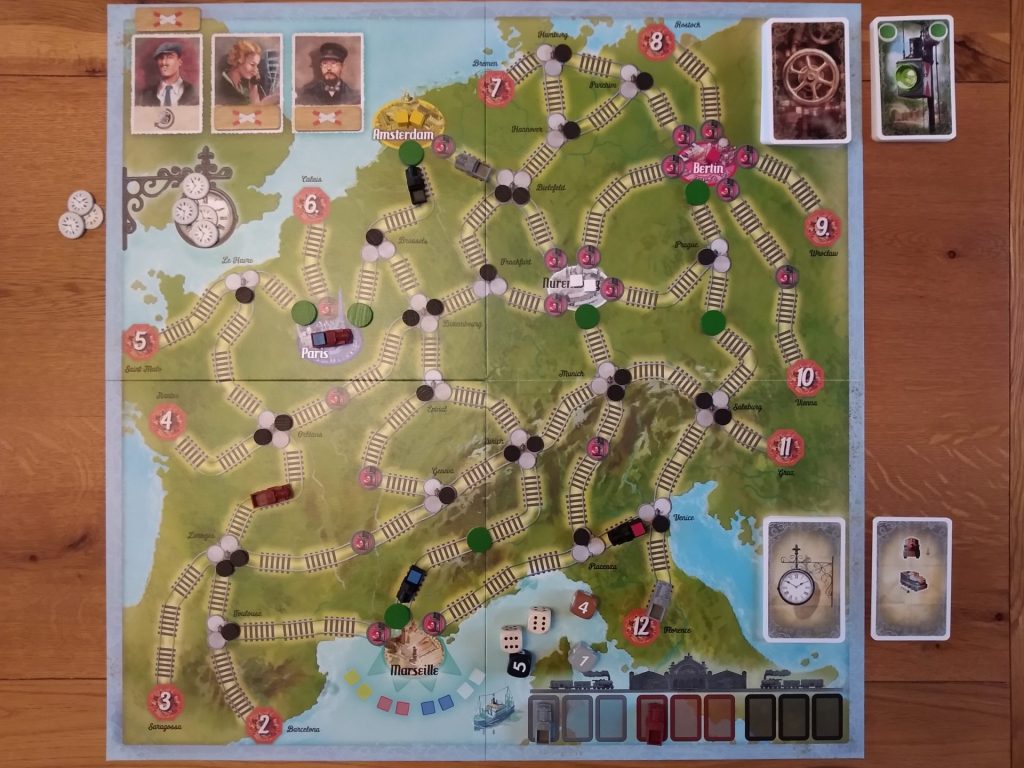
The more seriously a train game wants to be taken, the less ‘essence of train’ it contains. In fact, one of the best and truest train games of all is the not-at-all-serious Colt Express. The titular train is ostensibly just a stage for the bustling bandit action, but the game understands that trains move from place to place, affecting and affected by what’s on and around them.
In contrast, most board games assume that trains instantly move from station to station in one magical moment. No timetables, no other trains getting in the way and certainly no leaves on the line. It’s all rather dissatisfying.
Enter Switch & Signal.
All Aboard
Switch & Signal is a cooperative board game for two to four players that is all about trains. It is, in fact, the trainiest of modern train games. It’s also rather good.
Your goal is to deliver goods by train to one of the port cities – Marseilles on the Europe side of the board or San Francisco and New York on the USA side. You start with three trains of varying speeds and between every turn a ‘departure card’ is flipped to introduce more trains and/or move trains on the board. How far those trains travel depends on their type but also on the roll of custom dice – you know the range of each train but not precisely how far it’ll move.
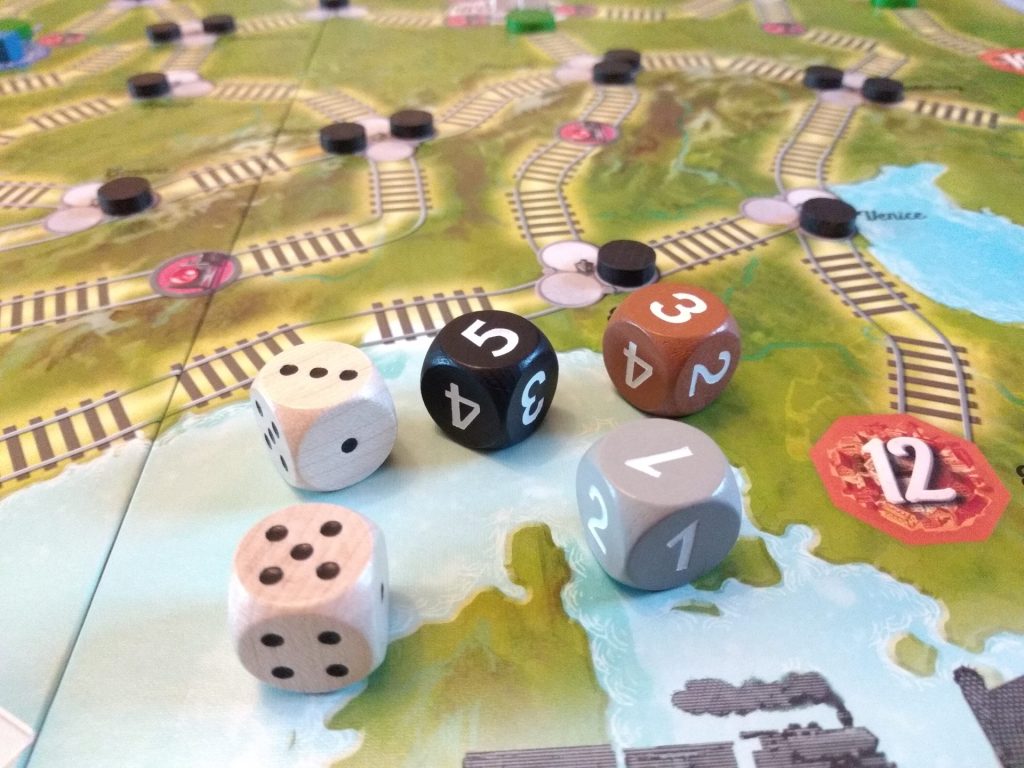
On your turn, you play ‘action cards’ to move trains, turn signal lights to green, and switch… um… switches. The game ends after 17 turns and you lose if you’ve not delivered all the goods by then (and win if you have). There are a few single use special abilities and some variants included in the box to increase/decrease the challenge, but in terms of how to play the game that’s about it. As always, how to play well is where it gets interesting.
You face problems everywhere. The board is littered with tracks, signals and switches and there could be up to nine trains of three different speeds on the rails, any or all of which might move before the next player takes a turn. Express trains don’t have to move far before a switch, signal or another train blocks their way, costing you time tokens and potentially shortening the game by a turn. The slow trains are easier to manage but you don’t have time to waste card after card chivvying them along all game.
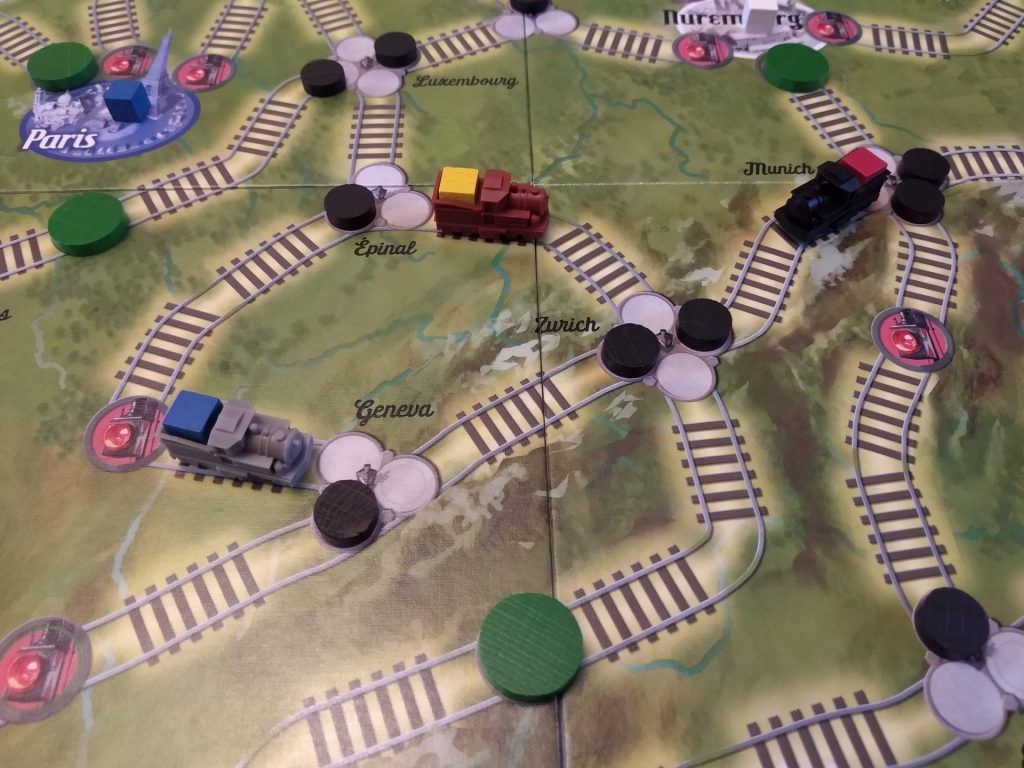
Nothing is complicated, but mentally juggling all the spatial information, the probabilities of train movement and the card types in your hand and around the table is enjoyably taxing. When you’re doing well there’s a lovely rhythm to the game, but your plans could be derailed at any time.
Destination Childhood
Trains have character. They’re a blend of independence and barely-contained force; intoxicating, free and dangerous. Ride the rails and you can feel the rhythmic beating of the train’s heartbeat thrumming through your body. It’s why people fall in love with trains, why people become spotters and buffs, foamers and ferroequinologists.
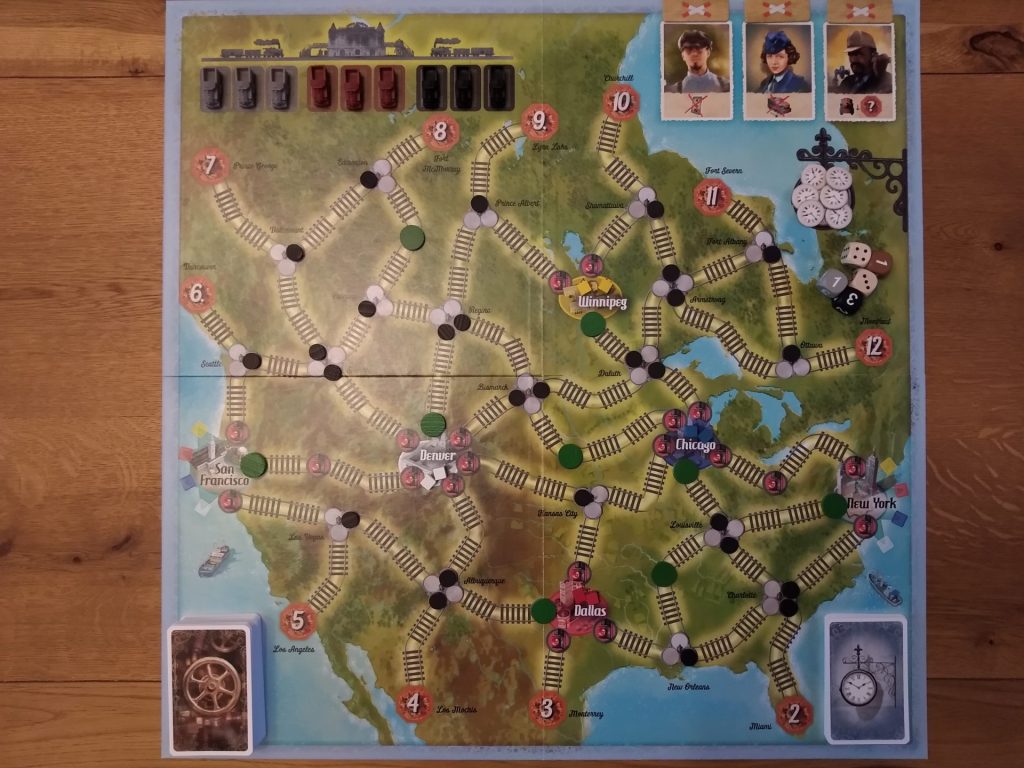
Switch & Signal understands this. It understands that trains are little more than programmed chaos. The dice spur your trains further than expected, sending them down dead ends or crashing into other trains. Or your trains don’t move far enough, blocking tracks or not quite clearing switches you were about to change. Those card flips stir trains into action before you’re ready, exiting cities in the wrong direction and without the goods you were about to load. Trains appear on the board in the most awkward of places, or are unable to appear on the board because you’ve not managed to move the train currently blocking that starting location.
It’s less a game of conducting obedient machines and more like herding wilful toddlers, hoping that they’ll listen to you this time.
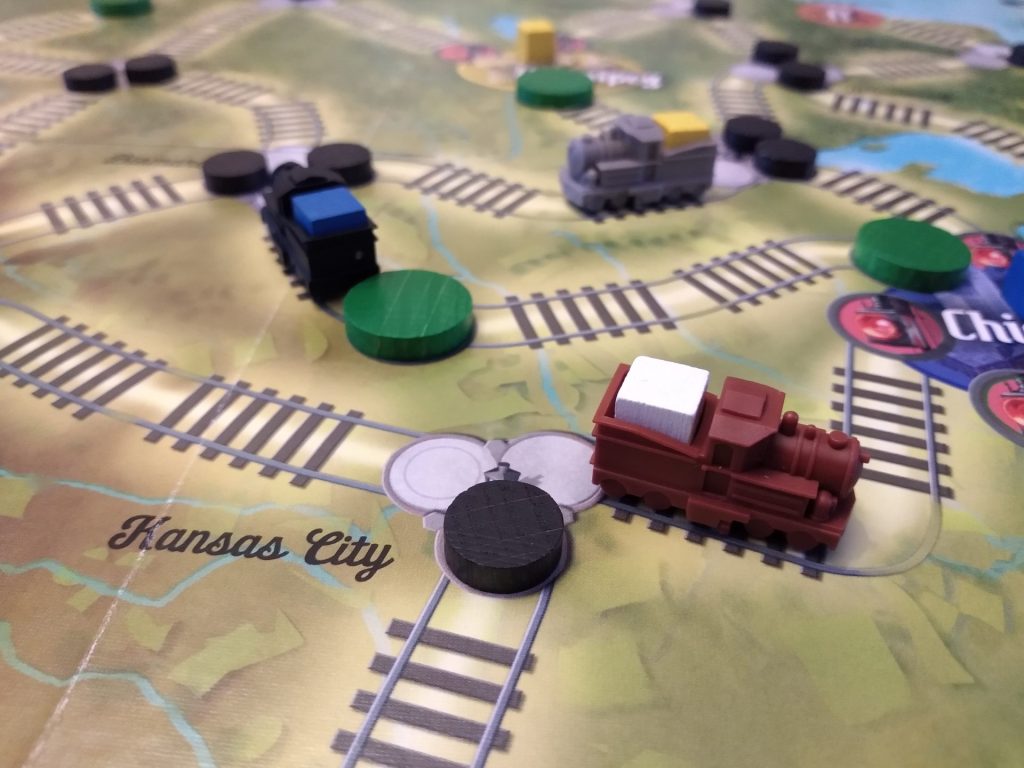
It’s this relationship with randomness, probabilities and a hazy sense of control that brings Switch & Signal to life. Other than a very occasional frustrating die roll, it’s hard to feel bitter about the role that chance plays in the game. Every mistake happens because you either didn’t spot the possibility of impending disaster or you saw it, but chose to put out the fire over there instead, banking on having another turn before the sparks caught over here.
It’s a game that builds early, creating peaks of excitement and satisfaction that repeatedly spike the fat middle of the game. When Switch & Signal is at its best (and it’s often at its best) there’s enough happening on the board that you can’t quite keep everything in your head at once and enough momentum to keep you barrelling along regardless, pushing the limits of a furious engine that might explode at any minute.
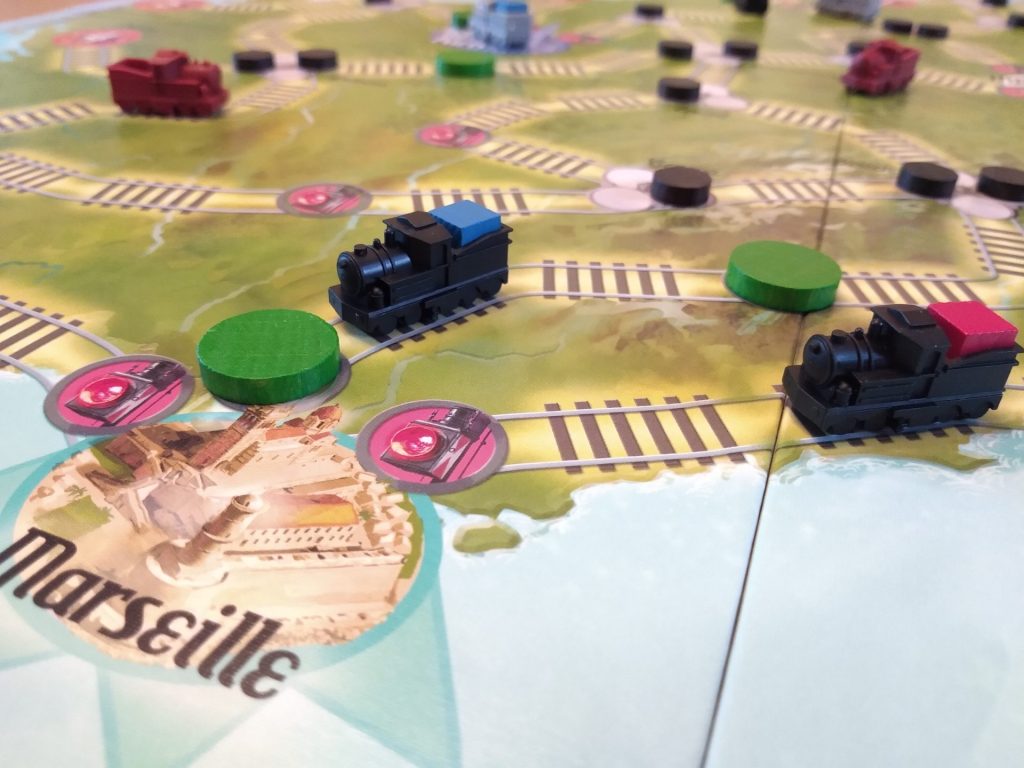
As a kid I had a wooden Brio set. My trains were always approaching junctions at the same time, the goal being for the trains to pass one another in thrilling near misses (with the occasional even more thrilling collision). Thirty years later I’m playing the same games with my kids, using the same Brio track that my parents kept in the hope of grandchildren. The narrow escapes we set up with their new motorised trains delight the kids. If I’m honest, they still tickle me too.
Switch & Signal mines this seam of joy. It lets me combine the adult satisfaction of efficiency and optimisation with the pleasure my inner child gets from last-minute route changes and close shaves.
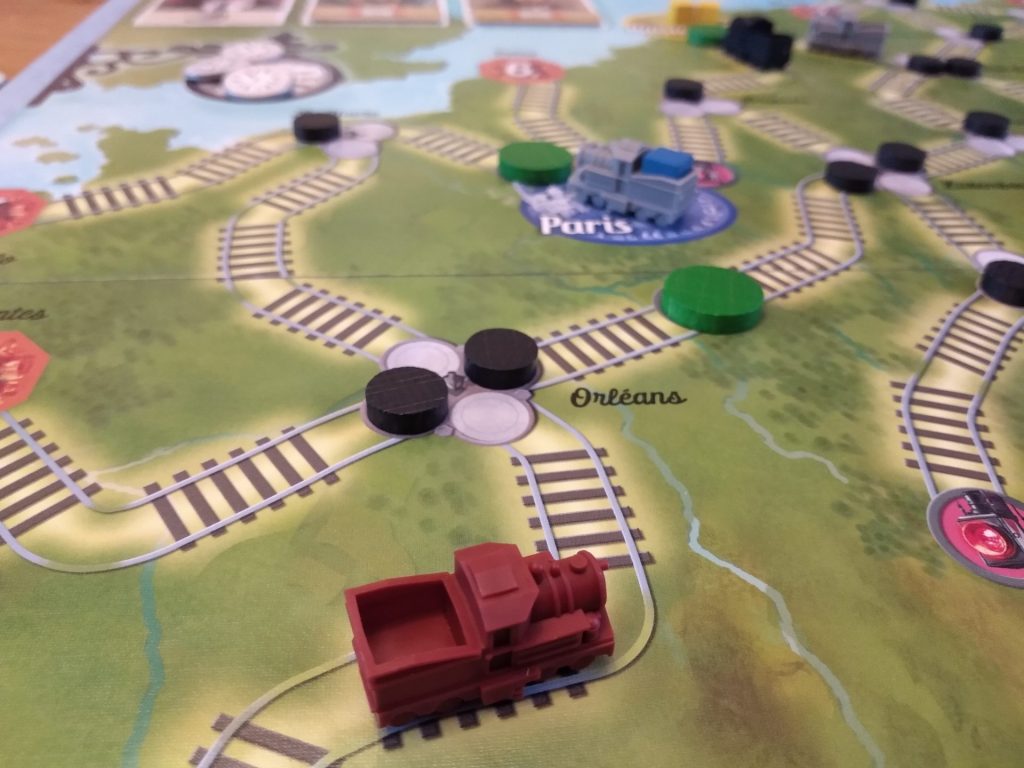
Leaves on the Line
Not every train arrives on time, however. Those between-turn ‘destination cards’ normally produce a nicely paced game but can also result in periods where few trains emerge. It’s uncommon (perhaps one game in five) but there’s nothing you can do to prompt new trains to be deployed and an unlucky shuffle results in a sluggish start or slows mid-game momentum. Generally, there’s enough happening either side of those moments to make up for it (and you can save cards in hand to produce deeply satisfying mega-turns), but shunting only one or two trains about for a few turns on the trot is pretty dull. When you consider that in a four-player game you might only get four turns, a quarter of those being a bit humdrum is frustrating.
With the game at full tilt, it’s unlikely a single player will spot every impending disaster on the board. It makes team strategising great because when you propose a plan, someone else will inevitably point out something you’ve missed. Provided that any quarterbacks have been benched it’s a lovely team game, although it’s possibly best with just two or three players allowing you to have those conversations as well as a decent number of turns.
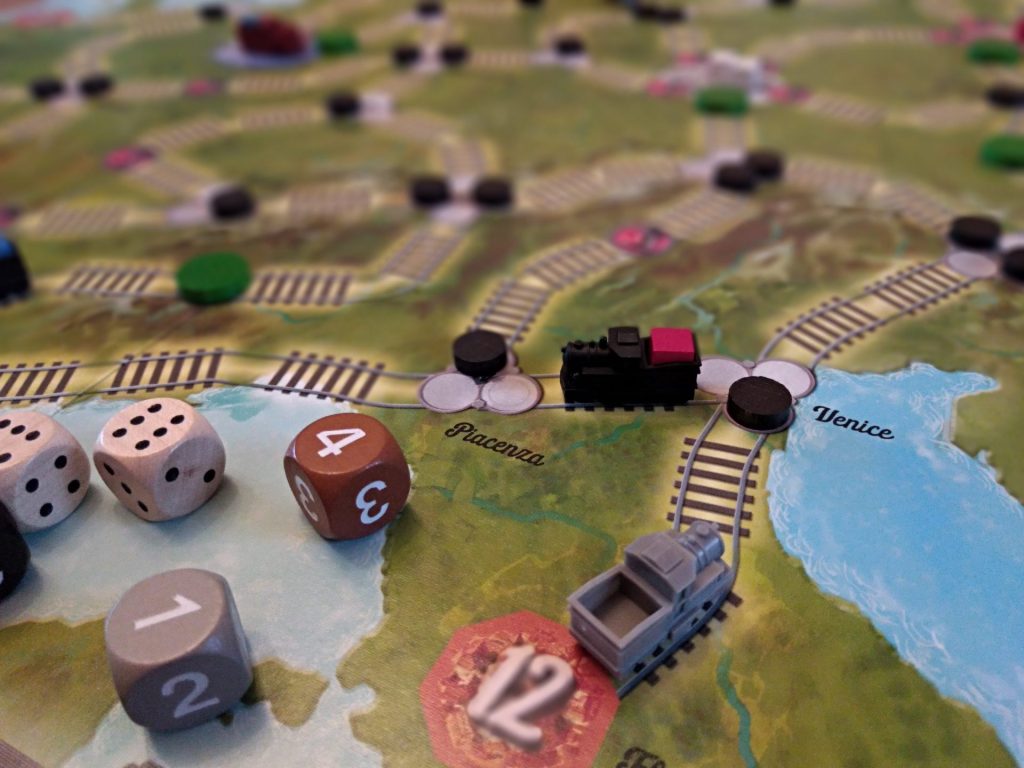
At its very best, Switch & Signal ramps the pressure up quickly and maintains that momentum throughout the game. Games tend to be close – winning or losing within a turn or so of the end. But the final result is generally known a couple of turns in advance, barring a particularly lucky or unlucky die roll. Regardless of the outcome, it makes the ending a bit of an anti-climax, all that momentum and energy dissipating as your train glides smoothly into the terminal station.
End of the Line
None of those little blemishes combine to create an ugly game, they’re more like the tiny imperfections that give a face character.
It isn’t a face that’s particularly flashy or grand. In today’s tabletop landscape Switch & Signal feels modest even. It’s a breath of fresh air from an earlier era when games weren’t striving to break the BoardGameGeek Top 100 but instead aimed to provide families and friends with an hour’s solid entertainment. Even the variants included in the box are just that – small, subtle tweaks that don’t dramatically change the core experience but are gratefully received all the same.
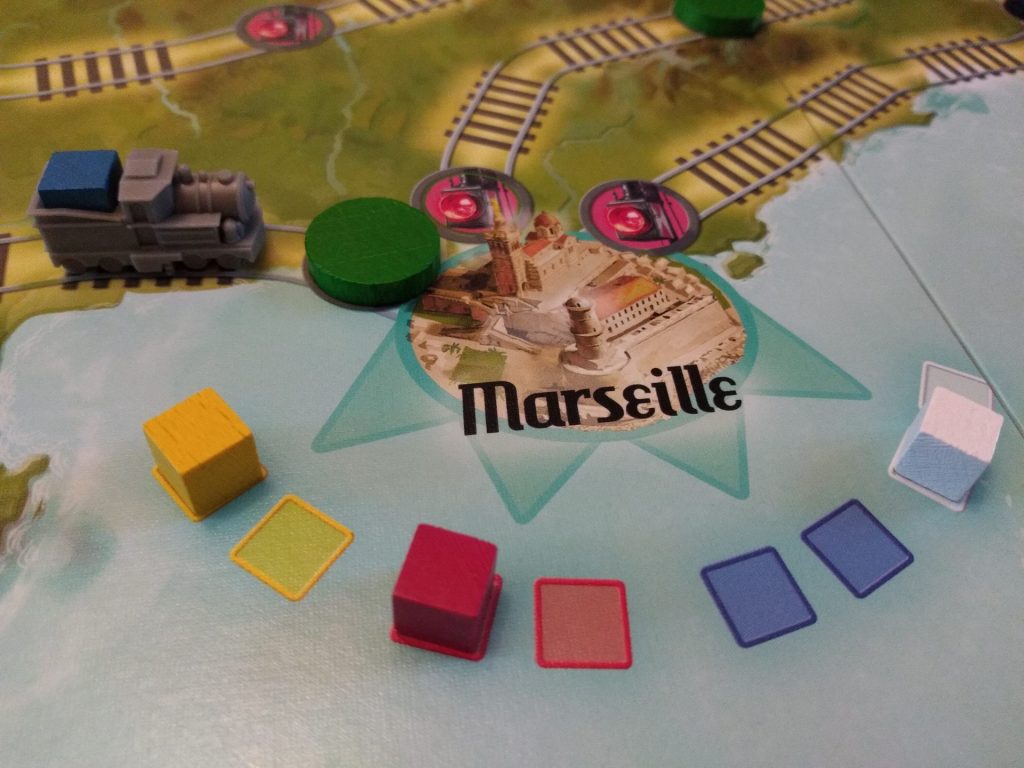
Switch & Signal gets the green light: quick to play, easy to learn, intuitively thematic and with an ever-changing puzzle at its core. When it builds a full head of steam, it manages to be teasingly playful whilst keeping you on your toes throughout. It’s up there with the very best of the simple cooperative games, such as the Forbidden series, Pandemic, Hogwarts Battle, Horrified, Zombie Kidz Evolution, Castle Panic and Escape: The Curse of the Temple.
Switch & Signal is a rare ‘train game’ that is, for once, about trains and it makes that a good experience for pretty much everyone. Whilst it isn’t completely flawless, it absolutely delivers the goods on time!


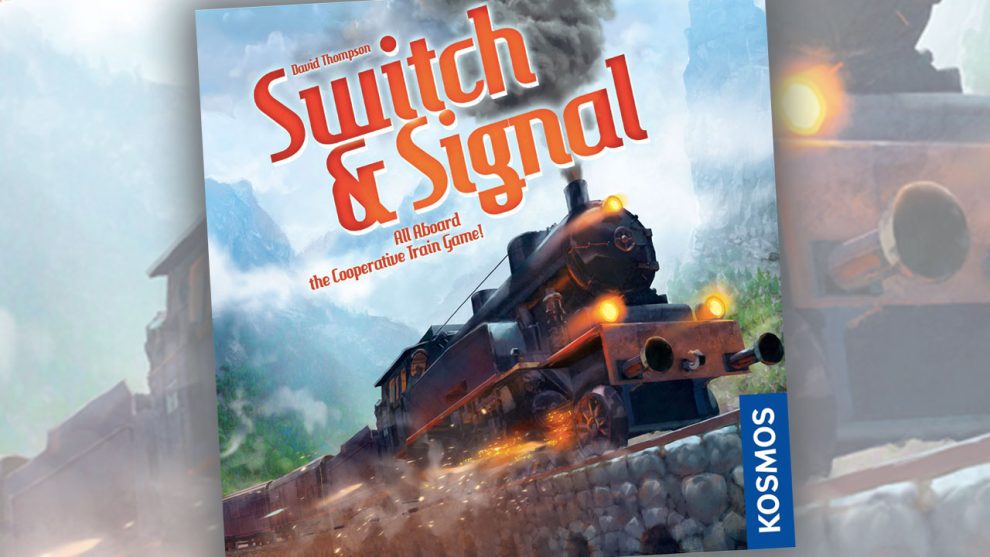

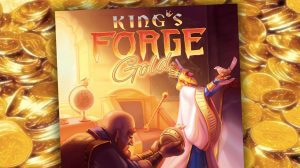

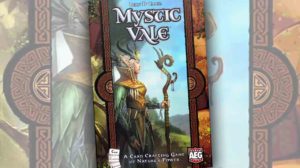





Add Comment